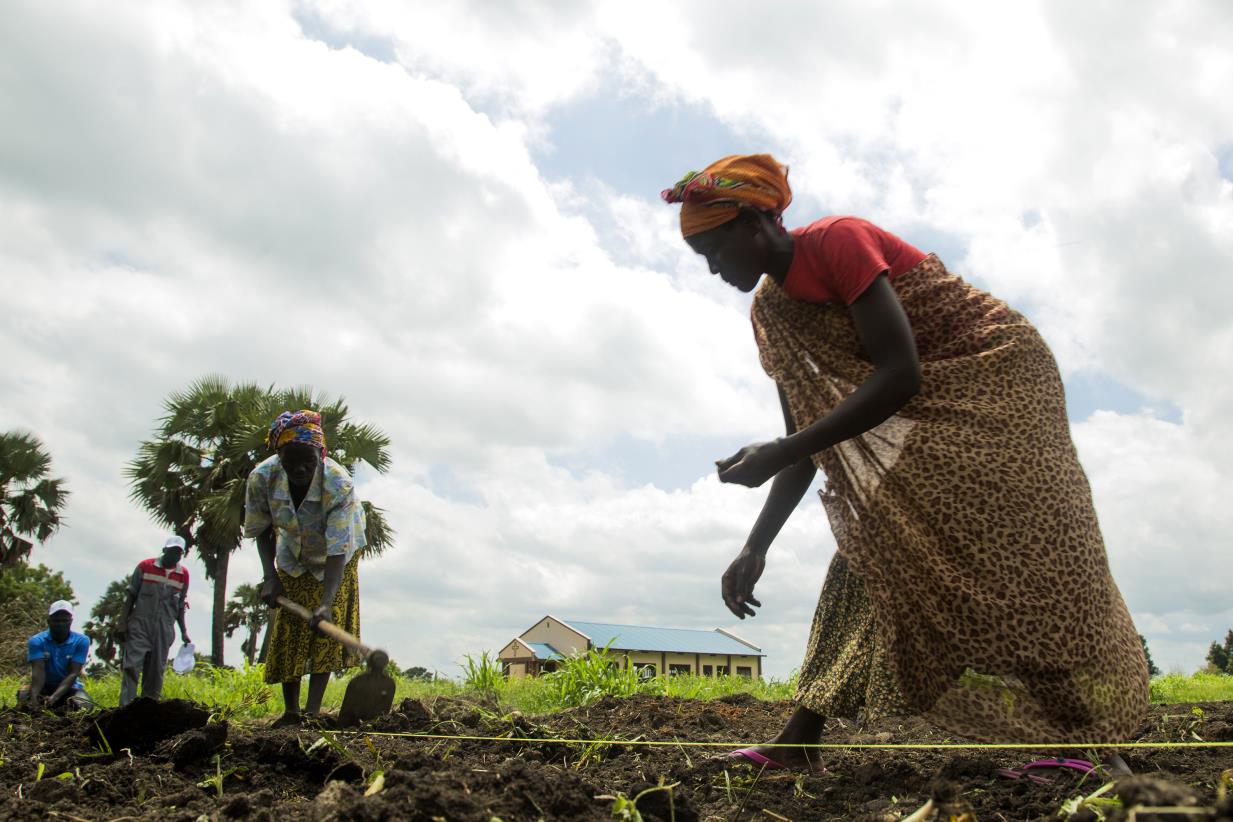To tackle the interrelated drivers of hunger, coherent, bottom-up approaches are key

FAO delivered a statement from the floor during the UN ECOSOC Management Segment today, alluding to the critical work of the Committee on World Food Security (CFS) and the UN Nutrition network.
Today saw the meeting of the UN Economic and Social Council (ECOSOC) Management Segment, convened to discuss and integrate key action points and priority areas of work across different UN actors and partners on road to delivering holistically on the 2030 Agenda.
Under the joint consideration of agenda items 10, 11 and 13, the Chair of the Committee on World Food Security (CFS), Gabriel Ferrero, and the Secretary of UN Nutrition, Naoko Yamamoto, each presented reports to the Council on their work.
Lucas Tavares, Senior Liaison Officer at the FAO Liaison Office with the UN in New York, delivered a statement from the floor. He alluded to the centrality of the CFS and UN Nutrition in informing the narrative, supporting the efforts, and helping move forward the response to ending hunger and malnutrition in a coordinated, inclusive, and evidence-based fashion.
“Hunger and malnutrition are driven by a set of interrelated drivers, including economic slowdowns, rooted inequalities, extreme weather events, climate change, and conflict,” Tavares said, pointing to how the COVID-19 pandemic – and more recently – the war in Ukraine, has only worsened what was an already difficult situation for global food prices and access to sufficient and healthy diets.
Transforming our agrifood systems: prioritizing a coherent and coordinated approach
The reports on the work of the CFS and of UN Nutrition both highlighted the centrality of understanding and responding to rising hunger and malnutrition through a whole-of-system approach, tackling the interconnected drivers of hunger.
“Responding to global food insecurity and malnutrition requires urgent, coherent, bottom-up and multidimensional actions involving different partners at different levels,” Tavares said, adding that the FAO Strategic Framework 2022–2031 and vision for nutrition contributes to this very response.
FAO, together with IFAD, UNICEF, WFP and WHO, constitute the core membership of UN Nutrition and have collectively set out an ambitious strategy for 2022–2030. Together, UN Nutrition is moving towards more coherent policy and action in nutrition from and within the UN. These efforts, coupled with the broad and inclusive discussions facilitated by the CFS, stand to play a key role in the follow-up to the UN Food Systems Summit.
In collaboration with members of UN Nutrition, FAO has also developed an evidence platform to facilitate the uptake of the CFS Voluntary Guidelines on Food Systems and Nutrition.
“We now provide technical support to the development of the CFS Voluntary Guidelines on Gender Equality and Women’s and Girls’ Empowerment in the context of food security and nutrition and to the policy recommendations on promoting youth engagement in agriculture and food systems,” Tavares said.
Efforts are likewise underway on the strategy’s implementation, and priorities include the importance of alignment and convergence in key global processes and supporting the UN Decade of Action on Nutrition.
About the CFS
Established in 1974, the Committee on World Food Security (CFS) is the foremost inclusive international and intergovernmental platform for all stakeholders to work together to ensure food security and nutrition for all. The CFS develops and endorses policy recommendations and guidance on a wide range of food security and nutrition topics. The Committee holds an annual plenary session every October in FAO headquarters in Rome.
About UN Nutrition
UN Nutrition is the UN inter-agency coordination and collaboration mechanism for nutrition at the global and country levels. Together, the inter-UN network seeks to overcome fragmentation, increase harmonization on nutrition and provide coordinated and aligned support to governments for greater impact for children, women and people everywhere.
Related links
- Watch the recording.
- Read the full statement delivered by FAO.
- Access the report presented by the CFS here and UN Nutrition here.
- Revisit the dedicated website of the 2022 UN ECOSOC Management Segment here.
